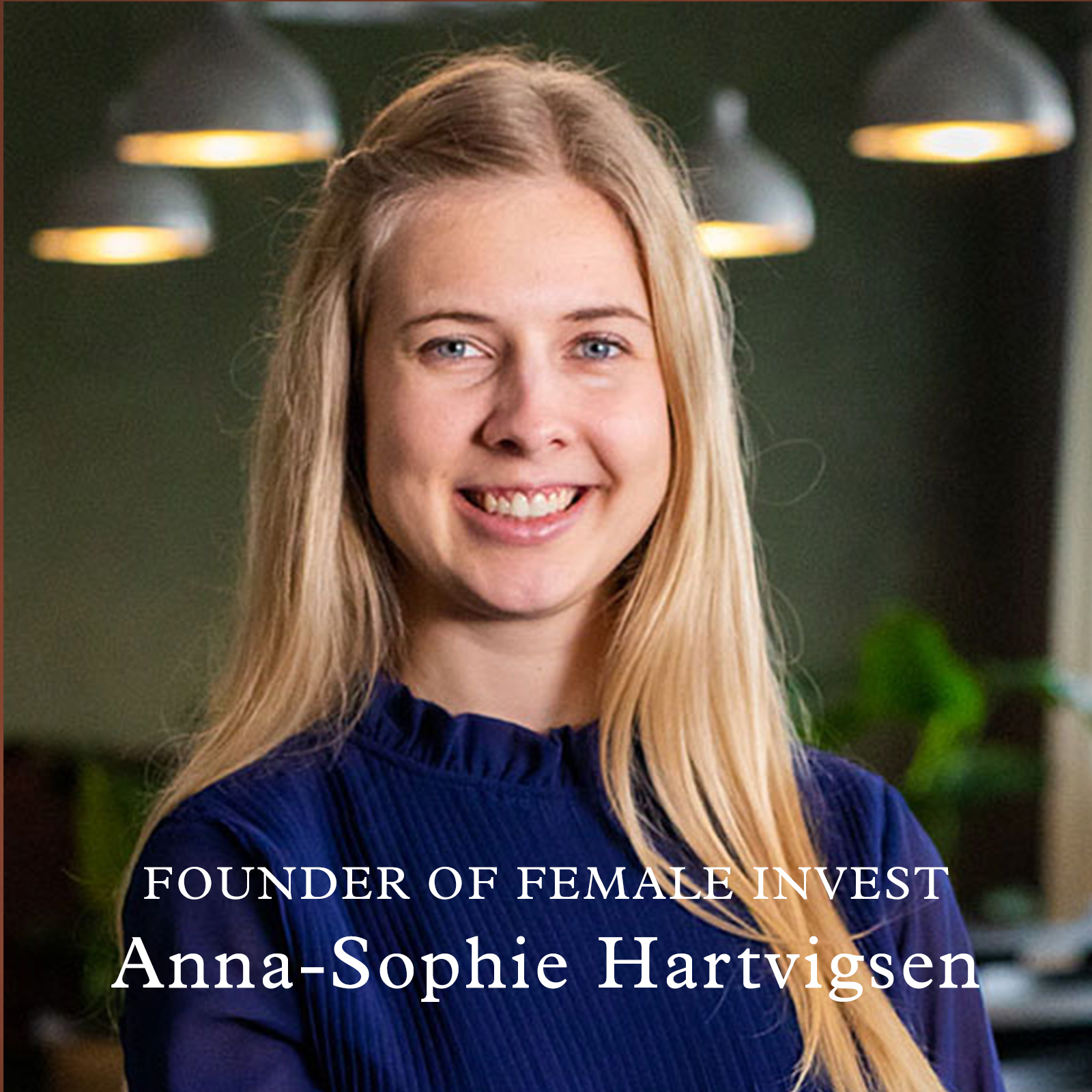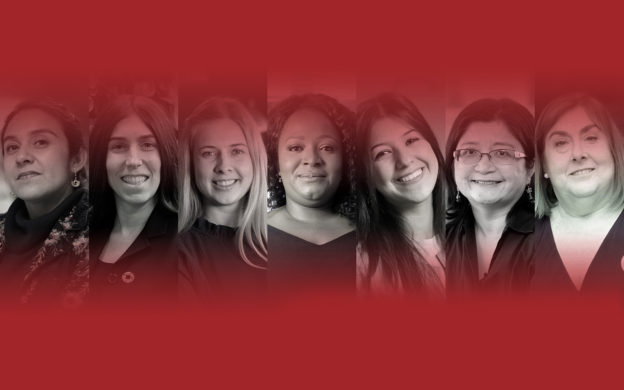Since 2006, Cartier has helped women entrepreneurs reach their full potential through their Cartier Women’s Initiative. The scheme shines a light on the achievements of women so often overlooked in male-dominated industries and provides them with the financial, social, and human capital they need to fully realize their business. It’s open to women-run and women-owned businesses from any country and sector, and in the 14 years its been running has promoted 240 promising female entrepreneurs hailing from 56 different countries and has awarded over 3 million USD to support their businesses.
21 finalists were selected from 1200 applicants from 162 countries, including Denmark and Sweden for the first time, and seven laureates were chosen. The 21 women chosen showcase a diverse range of talent that deserves the space and attention needed to flourish. You can find out more about the initiative and the finalists’ work here.
We spoke to the three Scandinavian finalists, Sofie Blakstd, Dora Palfi, and Anna-Sophie Hartvigsen – winner of the Laurette – about the initiative and what it means to their business:
Anna-Sophie Hartvigsen
Founder of Female Invest, a platform that seeks to close the gender investment gap by educating women on investing and personal finances.

Why is the visibility afforded by this initiative important to the work you do?
At Female Invest, we seek to financially empower women around the world. Gaining visibility is key as this is the first touchpoint with most women. Being associated with the Cartier Women’s Initiative is an amazing opportunity as the brand is known and loved by women around the world.
What is a defining memory from the first time you felt you needed to make a positive change/felt you were in a space not created for you?
I come from a small town where no one invests or talks about money. However, I’ve always been interested in the topic, so I taught myself to invest at the age of 19.
It was a new and exciting world, one where I quickly started to earn money, but I always felt alone as none of my female friends seemed to share my hobby.
I remember being at dinners where women expressed how cool they thought investing was but that it was too difficult for them to even start learning about.
I was surprised by this. When I started looking into the numbers, I realized it was a symptom of a global problem that holds women back financially.
That’s when I knew something had to change.
What’s the wisest thing you’ve been told/learned through your career and this process
Making mistakes is inevitable when running a company. The important thing isn’t what mistakes you make, but how you deal with them. It has taken me a long time to learn.
What words of encouragement/advice would you give to women reading this considering a career change/starting a business?
Just do it. You can’t learn to run a company by reading about it – you have to try it. You will never know if you never try, and I firmly believe most people get a million-dollar idea at least once in their life.
Sofie Blakstad
Founder of Hiveonline ApS, which helps underserved microbusinesses get credit and access markets they couldn’t normally reach by creating a trust history based on facts and business actions.

Why is the visibility afforded by this initiative important to the work you do?
We’re at an early growth stage, so it’s important to us to communicate why we do what we do and raise our profile with potential customers, partners, and investors.
We’re also committed to spreading the word about solutions like ours that show how vital women entrepreneurs are, and how much potential they have to build sustainable communities.

What is a defining memory from the first time you felt you needed to make a positive change/felt you were in a space not created for you?
I’ve been a fish out of water most of my career. I was the banking transformation and technology specialist with no degree and an odd background.
When I began to understand Blockchain [Bitcoin block explorer service], I saw it had the potential to solve the big problem that banks can’t – last-mile solutions for small businesses.
My defining memory, though, was when my boss told me I had to choose between carrying on in my very comfortable executive role or leave to focus on my business – and I didn’t choose him! He knew me well enough, but he was still surprised.
What’s the wisest thing you’ve been told/learned through your career and this process
I think the one thing that women in leadership roles don’t do enough is ask for help. This program has given me incredible support and shown how many amazing women there are out there, willing to devote their time to help. So ask for help – and take it!
What words of encouragement/advice would you give to women reading this considering a career change/starting a business?
Women entrepreneurs get significantly less VC capital than male entrepreneurs (around 2%) but produce much better returns on investment, so find a sustainable business model that makes money and build your business without outside capital.
Just because we don’t get investment, don’t let that put you off. You do belong in the room, even if you don’t look like everyone else. Women are building sustainable, inclusive teams to solve problems that guys don’t understand, because we bring our experience to the table – your solutions are needed.
Dora Palfi
Founder of ImagiLabs, which creates a community and mobile-first tools that make programming fun and relevant for teenage girls.

Why is the visibility afforded by this initiative important to the work you do?
For any young company, establishing a wide reach and trust for one’s brand is a challenging process. As a product-innovation driven company, a lot of our early work revolved around research and development. We’re just starting to learn how to reach wider audiences with our message! I truly appreciate the work that Cartier does in highlighting the stories of female impact founders who might not otherwise have the means to reach beyond their existing networks!
What is a defining memory from the first time you felt you needed to make a positive change/felt you were in a space not created for you?
As a female student in Science and Engineering, I was more or less used to not having women around me. What really stood out to me was when I took my first internship; I realized that there were no female managers, no women in the roles above me that I could aspire to.
Thinking back it was the same at university, I had practically no female professors.
This experience was powerful because I was always thought that tech was a fun and impactful industry to work in, as well as a sector with lots of flexibility and great work-life balance – I was shocked that there weren’t more women in the field.
What’s the wisest thing you’ve been told/learned through your career and this process
Asking for help is a strength, not a weakness, but you can’t expect people to just deliver solutions to you. You have to learn how to ask for help and how to implement the advice received.
When you go through the process of formulating very specific questions, you’re already halfway to finding a solution. When people see this they know you’re truly driven and committed to your business. Many – very busy and accomplished – people are willing to help.
What words of encouragement/advice would you give to women reading this considering a career change/starting a business?
It’s important to work on something you are truly passionate about with a team you trust and enjoy working with. Should you want to start your own business, it will inarguably come with countless new challenges and I believe having a clear mission and caring deeply about the problem you solve is what will help you through the difficult days. Similarly, no one can be at their best every day, which is why having co-founders who can support and complement is so important.

